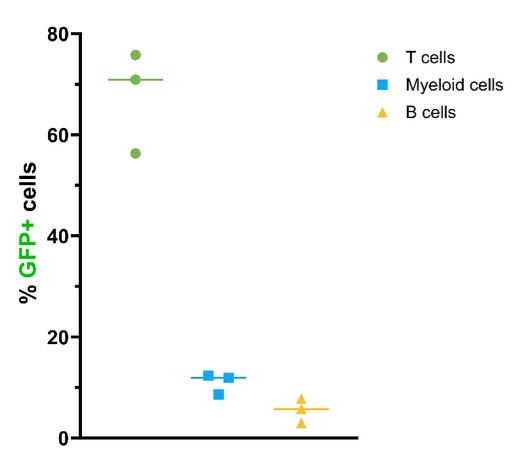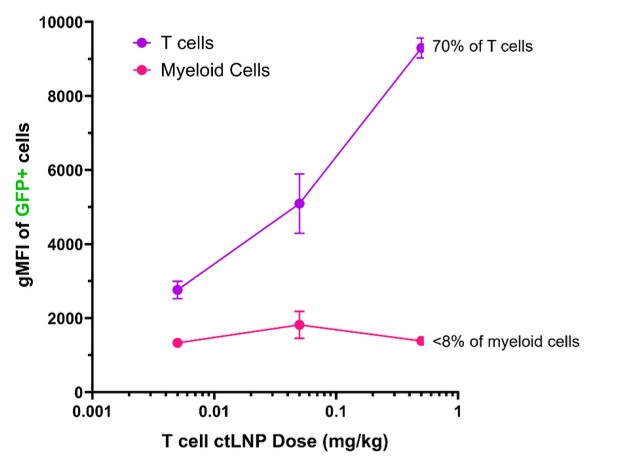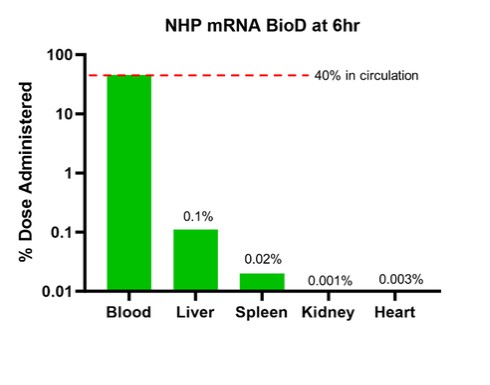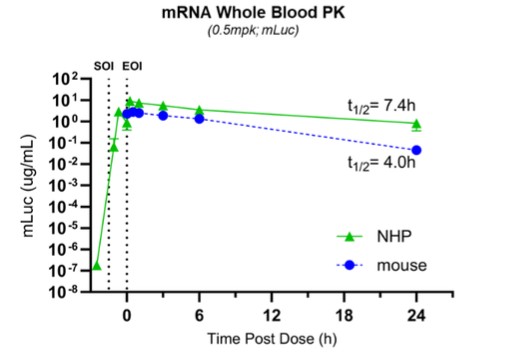Generation Bio Announces Demonstration of Highly Selective T Cell Transduction In Vivo with Cell-Targeted LNP Platform
| - | 70% of circulating and splenic T cells positive for mRNA expression in humanized mice with less than 8% delivery to off-target immune cells |
| - | Stealth properties of cell-targeted lipid nanoparticle (ctLNP) platform confirmed in non-human primates, demonstrating prolonged circulation and less than 0.1% delivery to liver and spleen |
| - | Data provide initial proof of concept for in vivo delivery to T cells and the ability to apply ctLNP platform to extrahepatic tissues and cell types |
| - | Company will present today at the ESGCT 30th Annual Congress and host a webcast R&D deep dive on November 1 |
Cambridge, Mass. – Oct. 26, 2023 – Generation Bio Co. (Nasdaq:GBIO), a biotechnology company innovating genetic medicines for people living with rare and prevalent diseases, announced that it has reached two significant achievements through in vivo studies, including results generated as part of its collaboration with Moderna, Inc. First, Generation Bio has shown highly selective T cell targeting in vivo with its cell-targeted LNP (ctLNP) platform in a humanized mouse model. Separately, the company has confirmed the stealth properties of its ctLNP platform in non-human primates (NHPs). Generation Bio will present these data at the European Society for Gene and Cell Therapy (ESGCT) 30th Annual Congress in Brussels, Belgium at 4:40 p.m. CEST today. Slides from the presentation will be made available on Generation Bio’s website following the presentation.
Generation Bio’s ctLNP platform enables delivery of RNA and DNA cargos to difficult to reach tissues and cell types by avoiding off-target clearance by the liver and spleen, and by using conjugated targeting ligands to drive selective, receptor-mediated uptake. The ctLNP platform is the foundation of the immune cell targeting programs in Generation Bio’s collaboration with Moderna, which aims to leverage ctLNPs for in vivo delivery of nucleic acid therapies to select immune cell types, including T cells.
“The data we’ve generated for our ctLNP platform demonstrate a unique ability to target extrahepatic tissues and cell types, giving us confidence as we advance genetic medicines for the treatment of diseases beyond the liver, which is an exciting new frontier for the field and for patients,” said Matt Stanton, Ph.D., chief scientific officer of Generation Bio.
As part of the company’s collaboration with Moderna, Generation Bio has demonstrated that its T cell ctLNPs successfully drive highly selective receptor-mediated uptake and expression of mRNA in humanized mice upon systemic administration, as shown in Figure 1. Furthermore, uptake and expression in T cells was shown to be dose-responsive, without increasing delivery to off-target cell types, as shown in Figure 2.




